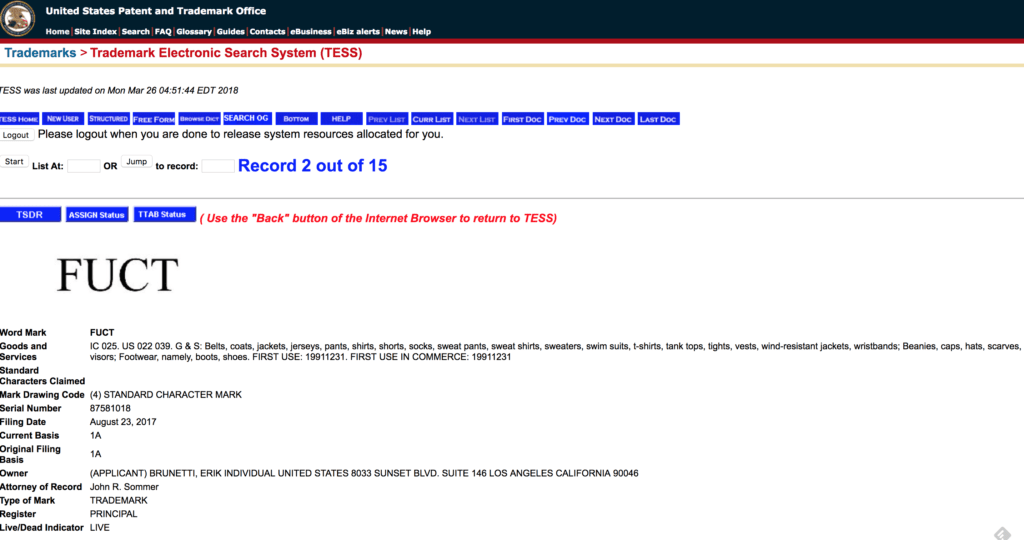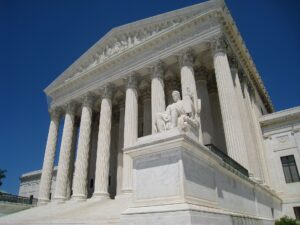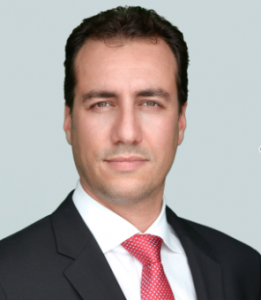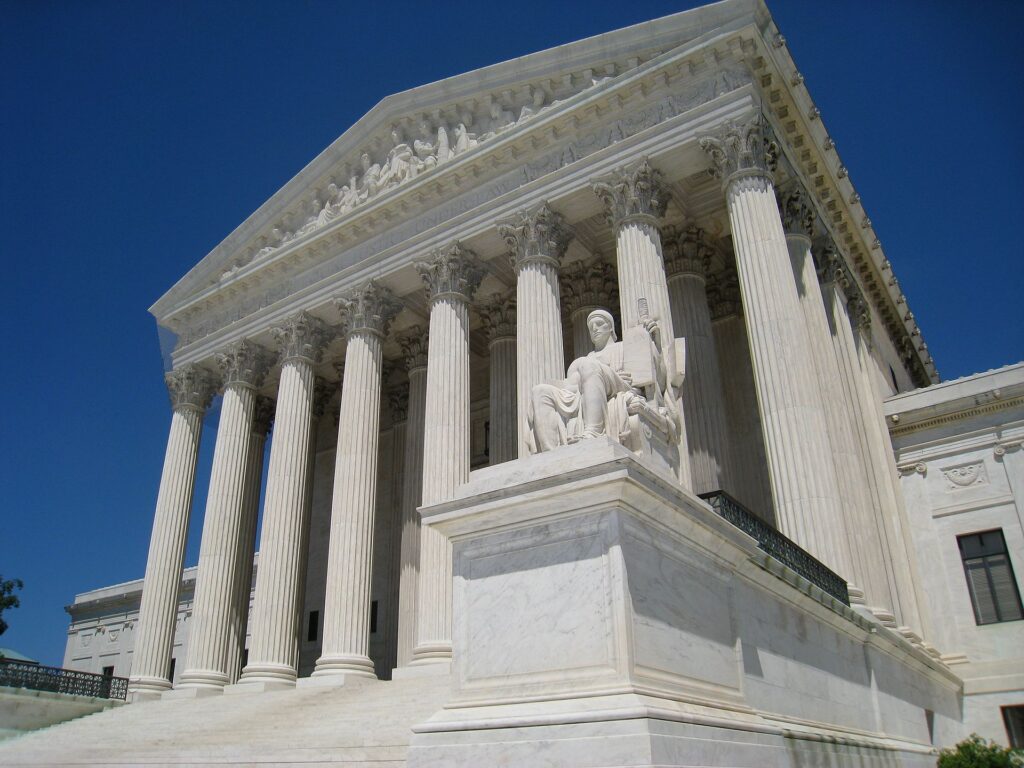The United States Patent and Trademark Office (USPTO) has historically had discretionary authority to issue trademark office actions and refuse federal registration to trademarks that consist of “immoral, deceptive, or scandalous matter; or matter” under Section §2(a) of the Lanham Act (Section 1203.01 of the Trademark Manual of Examining Procedure).
The rule against the registration of trademarks, logos, or slogans that contain immoral or scandalous matter was originally enacted in the Trademark Act of 1905, and was reenacted as part of §2(a) of the Act of 1946 (the Lanham Act). There is little legislative history concerning the intent of Congress with regard to the provision and “scandalous” is interpreted by looking to “its ordinary and common meaning.” In re Riverbank Canning Co., 95 F.2d 327, 3 (1938). The United States Patent and Trademark Office (USPTO) will traditionally refer to court decisions, decisions of the Trademark Trial and Appeal Board (TTAB) and dictionary definitions in evaluating Trademark Office Action based on Section 2(a) of the Act.

The standard typically requires shocking to the sense of propriety, offensive to the conscience or moral feelings or calling out for condemnation. The statutory language “scandalous” has also been considered to encompass matter that is “vulgar,” defined as “lacking in taste, indelicate, morally crude. See e.g. McGinley, 660 F.2d at 486, 211 (holding scandalous a mark comprising a photograph of a nude, reclining man and woman, kissing and embracing, for a “newsletter devoted to social and interpersonal relationship topics” and for “social club services”).
Changing Standard for Trademark Office Actions Based on Immoral Or Scandalous Matter
The constitutionality of Trademark Office Actions in the United States Patent and Trademark Office (USPTO) based on Immoral or Scandalous Matter was successfully challenged in 2017 in the landmark case Matal v. Tam. There, an Asian rock band called “The Slants” sought federal registration for their band name, which the USPTO refused, claiming that the term was disparaging to persons of Asian descent and citing §2(a). After multiple appeals, the United States Supreme Court took on the case and issued a unanimous decision holding that the §2(a) provision against federal registration of disparaging marks violates the First Amendment’s Free Speech Clause.

On the heels of Tam declaring the current Trademark Office Actions rules regarding Immoral Or Scandalous Matter unconstitutional restraint of free private speech, a three-judge panel of the Court of Appeals for the Federal Circuit then struck down the “immoral” and “scandalous” refusal pending in another case, In re Brunetti, which was on appeal on grounds for refusing registration and awaiting the Tam outcome. At issue in Brunetti was a trademark for the term FUCT (acronym for “Friend U Can’t Trust”) in connection with apparel in International Class 025,, which the applicant had used since 1990, and in other categories including International Class 018 for handbags and leather goods, International Class 035 for e-commerce services, and in International Class 009 for cell phone cases, among other goods.
The Brunetti ruling in the Federal Circuit with authority over the USPTO will now guide revised USPTO rules and examination procedures as to what Federal Trademark Office Actions or pending Applications may violate the current version of the Immoral Or Scandalous Matter rules. In the meantime, Federal Trademarks facing refusal under Section 2(a) and 1203.01 of the Trademark Manual of Examining Procedures are likely to be suspended pending effective March 10, 2016.
Trademarks by nature cater to their customers and market conditions. The recent expansion of trademark rights by limiting the immoral or scandalous subject matter Trademark Office Actions in the USPTO removes what the today’s Supreme Court deems an unconstitutional limitation on free speech. While this a controversial decision for some, the Supreme Court was inclined to rely more on the long standing principles of First Amendment free speech rights and free markets, since trademark rights inherently require use in commerce in the ordinary course of trade, rather than decades old USPTO rules that may no longer reflect the increased level of tolerance American society has developed, even for the most extreme and sensational forms of speech, or in this brands.

The content above is a discussion of legal issues and general information; it does not constitute legal advice and should not be used as such without seeking professional legal counsel. Reading the content above does not create an attorney-client relationship. All trademarks are the property of L.A. Tech & Media Law Firm or their respective owners. Copyright 2017. All rights reserved.


